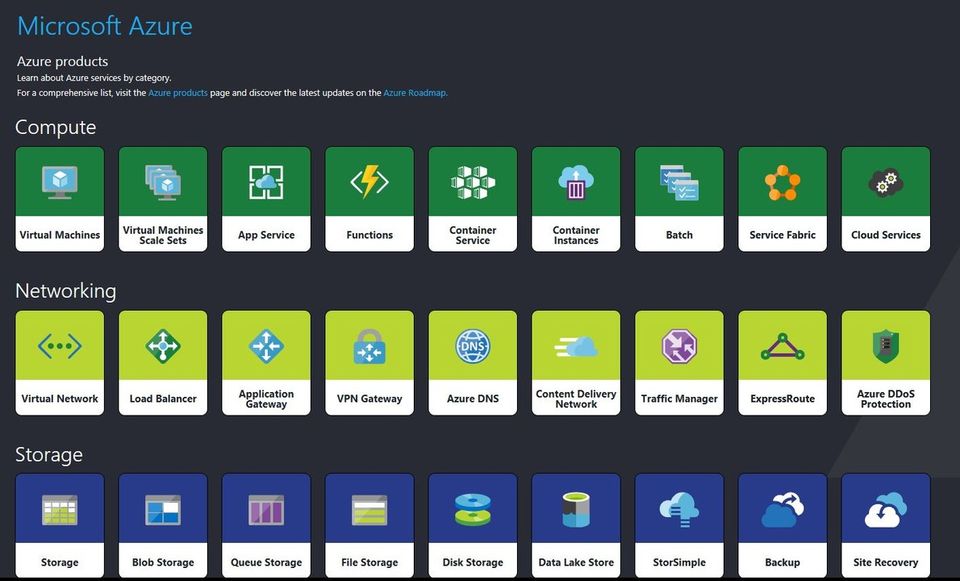What is Microsoft Azure and Why Might You Need It?

Microsoft Azure is a comprehensive cloud platform offering a range of services for computing, data storage, and application hosting. As a major player in the cloud services market, Azure holds approximately 19% of the market share. While it is smaller compared to AWS, its presence and influence are growing, particularly as it continues to attract significant clients, including large corporations. Nonetheless, Azure faces competition from other providers, such as Google and IBM.
Table of contents
Microsoft Azure is a comprehensive cloud platform offering a range of services for computing, data storage, and application hosting. As a major player in the cloud services market, Azure holds approximately 19% of the market share. While it is smaller compared to AWS, its presence and influence are growing, particularly as it continues to attract significant clients, including large corporations. Nonetheless, Azure faces competition from other providers, such as Google and IBM.
Advantages of Azure

- Hybrid Use Azure supports a hybrid cloud model, combining the benefits of both public and private clouds. This flexibility allows organizations to configure Azure in a way that meets their specific needs.
- Flexibility Azure is compatible with a wide range of systems, languages, tools, and platforms. Whether using Windows or Linux, Azure enables the development of cross-platform web applications, accommodating various ecosystems.
- Efficiency Azure offers competitive pricing based on a pay-per-minute model. This means you pay only for the resources you use, and you can choose when to utilize them, helping to manage costs effectively.
- Infrastructure Creation Azure relies on virtual machines and management tools to build and maintain infrastructure. This approach supports system scaling, reliability, and stability, eliminating the need to rent dedicated Azure virtual servers.
- Access Control Azure allows for precise management of user groups, integration with existing directories, and the use of single sign-on (SSO) within Microsoft Cloud Azure. This makes it easier to manage access and maintain security.
- Cost Reduction Migrating part of your enterprise infrastructure to Azure can help lower costs. You only pay for the resources and capacity you actually use. Additionally, Azure’s ability to quickly provide additional capacity allows for rapid performance improvements when needed.
- Integration with Existing Systems Azure enables you to combine cloud services with your company's existing systems. This includes the ability to migrate virtual machines between your data center and Azure, facilitating a seamless integration process.
Azure Products

Azure offers a vast catalog of over 600 services, organized into 21 categories ranging from DevOps and analytics to containers and mixed reality. Each service comes with detailed documentation outlining its functionality and potential use cases.
Examples of Azure Products:
- Azure Active Directory: A tool for managing access and authentication. IT administrators can set up multi-factor authentication, while developers can use APIs to create custom sign-on experiences.
- Microsoft Azure Storage: Provides solutions for backup and data recovery. It ensures compatibility at both the server and database levels, allowing for the deployment of site backups directly from the cloud.
- Microsoft Azure Media Services: Simplifies the handling of media files, reducing costs associated with streaming and broadcasting.
- Mobile Application Development and IoT Services: Azure supports the development of mobile apps and Internet of Things (IoT) solutions, along with computing and Windows virtual desktop services.
Azure’s extensive set of tools and services caters to a wide range of needs, making it a versatile option for businesses of all sizes, including large enterprises.
Conclusion

Azure’s broad functionality and flexible options make it a valuable tool for businesses and developers alike. Its ability to adapt to various scenarios and its support for continuous learning ensure that users can make the most of this powerful cloud platform.
Article FAQ
- What is Microsoft Azure?
- Microsoft Azure is a comprehensive cloud platform that provides a variety of services for computing, data storage, and application hosting. It is widely used by businesses to manage workloads and optimize infrastructure.
- What are the advantages of using Azure?
- Some key advantages of Azure include hybrid cloud capabilities, flexibility to work with multiple platforms, cost-efficiency through a pay-per-minute model, and scalable infrastructure management using virtual machines and management tools.
- How does Azure handle hybrid cloud models?
- Azure supports hybrid cloud models by combining the benefits of both public and private clouds. This allows organizations to configure cloud services that meet their specific requirements while integrating with their existing systems.
- Can Azure help reduce costs?
- Yes, Azure's pricing model charges users only for the resources they use. Its ability to quickly add or reduce capacity as needed ensures cost savings for businesses by preventing unnecessary overuse of resources.
- What are some key services provided by Microsoft Azure?
- Azure offers over 600 services, including Azure Active Directory for access management, Microsoft Azure Storage for data backups, Azure Media Services for handling media files, and solutions for mobile app development and Internet of Things (IoT) applications.
- Is Azure suitable for large enterprises?
- Yes, Azure caters to businesses of all sizes, including large enterprises. Its diverse set of tools and services provides comprehensive support for various operational needs, from application development to infrastructure management.
- What is Azure's pricing model?
- Azure operates on a pay-per-minute pricing model. This allows businesses to pay only for the resources they actually use, offering flexibility and efficiency in managing costs.
- How does Azure integrate with existing company systems?
- Azure enables seamless integration with existing company systems, allowing businesses to migrate virtual machines between their data centers and the Azure cloud. This simplifies the process of combining cloud services with current infrastructure.
- What is the Azure Active Directory service?
- Azure Active Directory is a tool for managing user access and authentication. It allows IT administrators to set up multi-factor authentication, and developers can use it to create custom sign-on experiences using APIs.
- What industries or departments benefit most from using Azure?
- Azure is highly beneficial for businesses across various industries, including IT, finance, and healthcare. It is especially useful for companies looking to optimize their data management, cloud infrastructure, and application development.